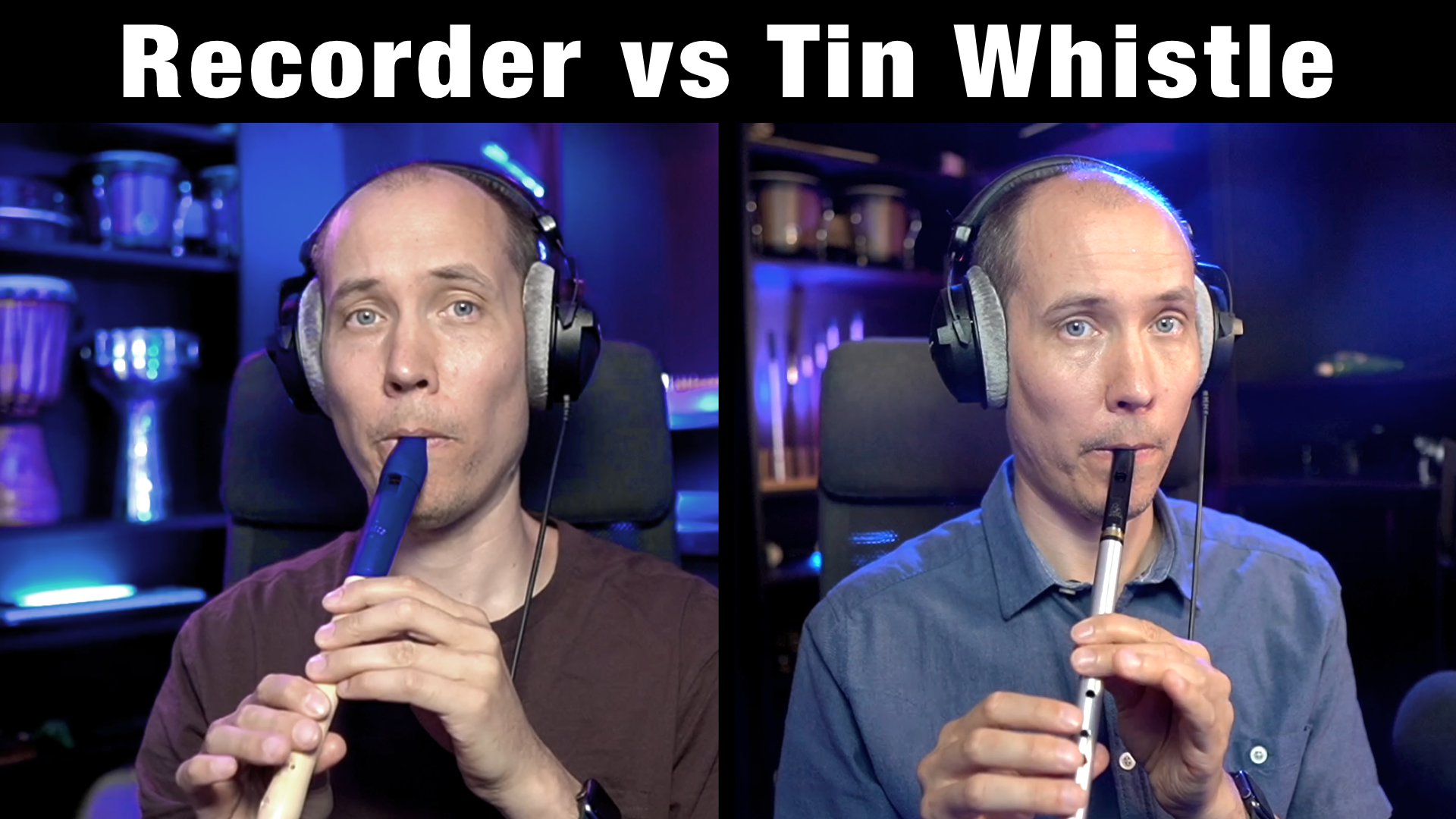 Are you trying to decide which instrument you should focus on learning? The recorder and the tin whistle are in fact part of the same instrument family, which is called “fipple flute”.
Are you trying to decide which instrument you should focus on learning? The recorder and the tin whistle are in fact part of the same instrument family, which is called “fipple flute”.
They produce the sound in the same way, which is a mouth piece you blow air into, and that air stream is directed towards a fixed edge.
The main advantage of this design is that you don’t need to worry about your embouchure to produce the sound (embouchure is the way you shape your lips, angle the air stream etc). But the recorder and tin whistle are still very different instruments, so let’s explore the main differences:
Recorder vs Tin Whistle – Main Differences
- The Recorder has 9 holes + a thumb hole = More complex fingerings
- The Tin Whistle only has 6 holes = Easier to learn fingerings
- The Recorder is fully chromatic (plays all 12 notes, in 2+ octaves).
- The Tin Whistle is diatonic (requires half-holing to reach all 12 notes).
- The Recorder is traditionally made of wood
- The Tin Whistle is most often made of metal
- The Recorder has a soft, mellow sound
- The Tin Whistle has a clear, sharp, breathy sound
Recorder vs Tin Whistle – Which is Better?
I play both tin whistles in many different keys, as well as recorders (treble, alto, tenor). I started with tin whistles, and I think it is generally the easier one to play for beginners. However, since I play lots of music that modulate keys, and generally use more accidental notes, I have started to prefer recorders more.
Which instrument is best for you depends on many aspects. Do you prefer the simplicity of the tin whistle fingerings, or the full chromatic versatility of the recorder?
Do you prefer the focused, bright and breathy tone of the tin whistle, or the softer and more classic tone of the recorder?
In any case, I recommend starting with a high range instrument first. Even though you may prefer the more mellow sound of lower ranges, it is in fact way much easier to learn on a smaller instrument because of the closer distance between the holes, and less air requirements.
If you enjoy the instrument, I would highly recommend you to eventually learn both the recorder and the tin whistle. Good luck, and have fun on your learning journey! =)
